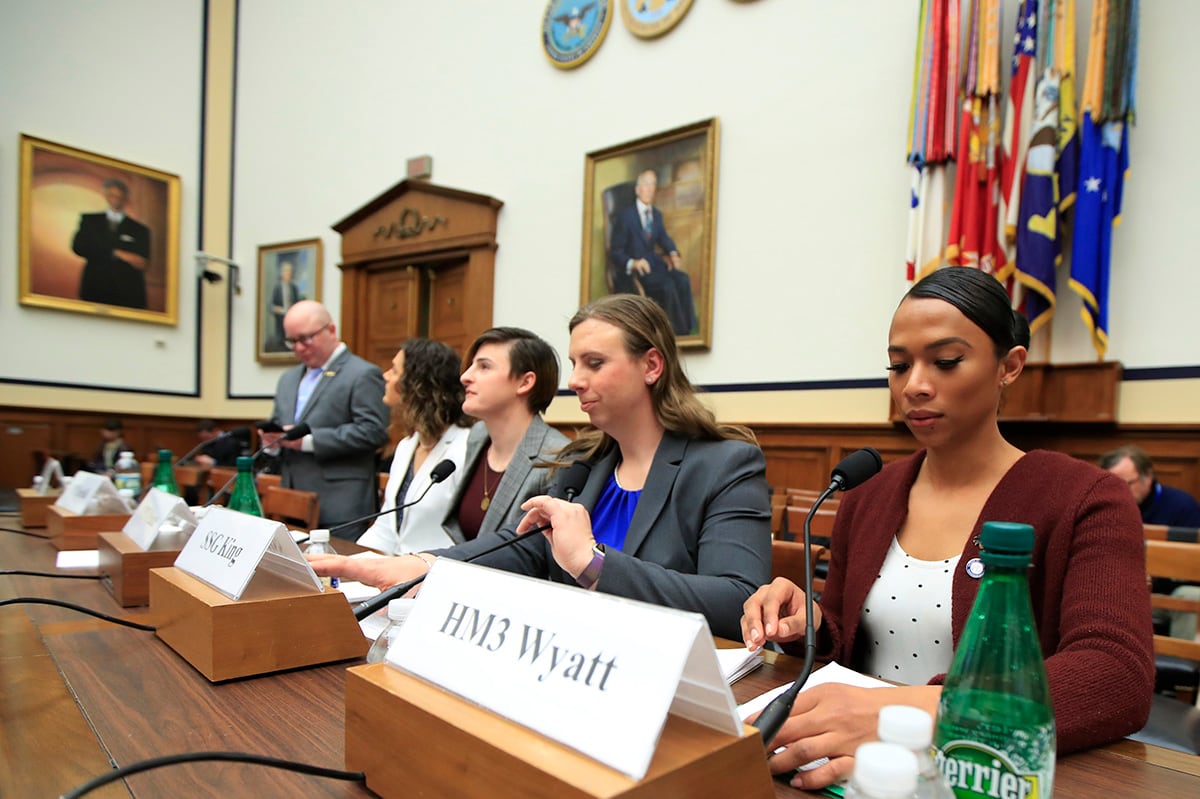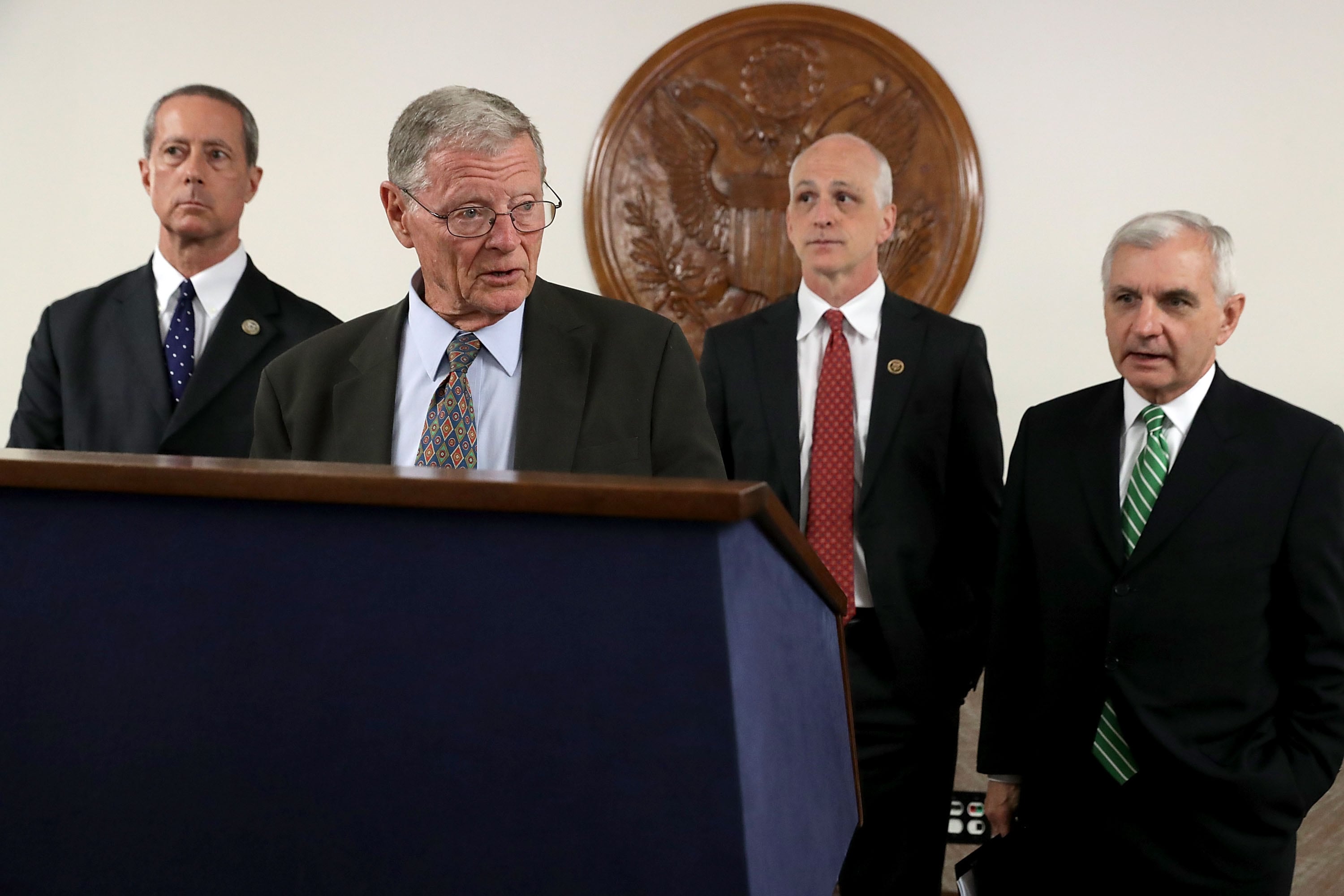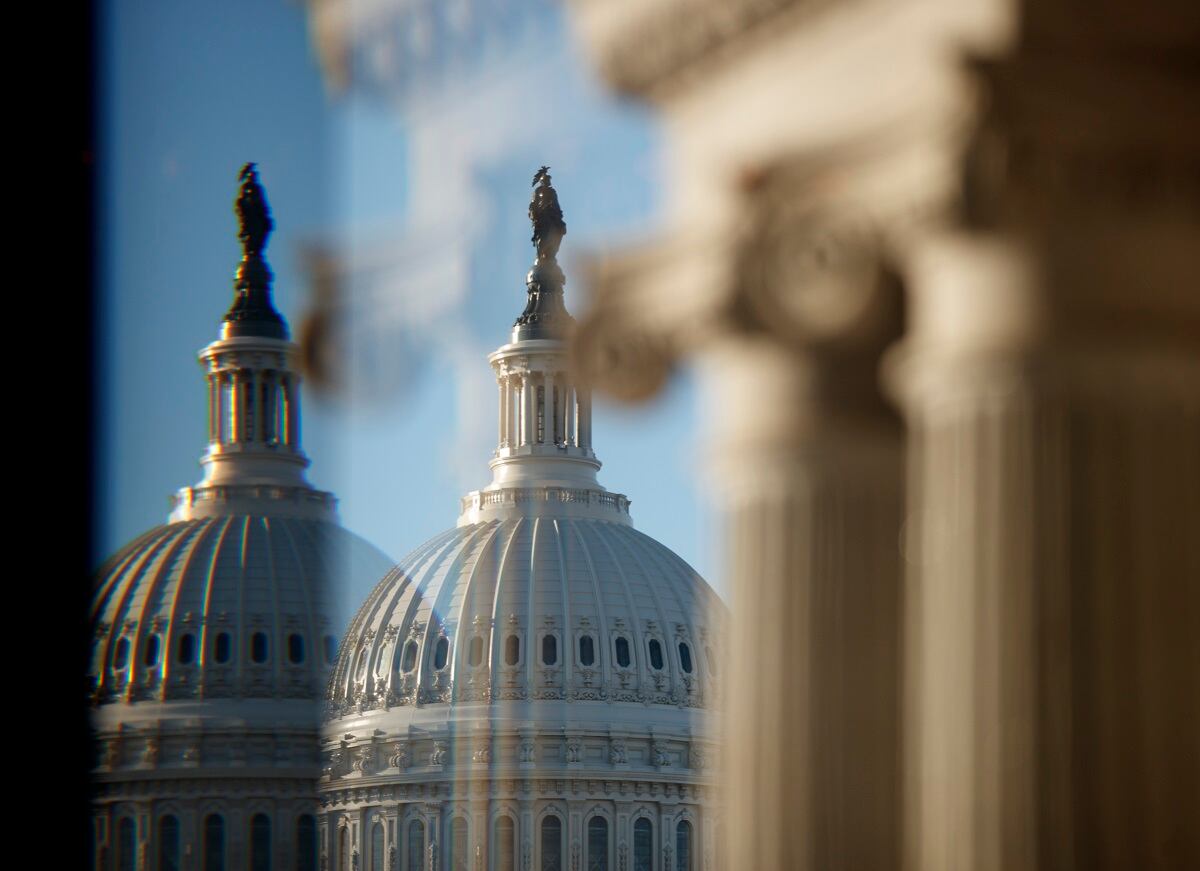WASHINGTON ― As if the fight over military spending wasn’t heated enough, House lawmakers are also poised to battle on the chamber floor this week over rules regarding transgender service members and new low-yield nuclear weapons as part of their defense appropriations work.
Debate on a $983 billion “minibus” has been ongoing for days due to parliamentary delays by House Republicans upset with the funding proposal. After late-night votes last week, the work is set to restart Tuesday with dozens more of amendments to the package, 56 of them related to defense.
In the latest regarding the House’s partisan battle on nuclear weapons, Rep. Liz Cheney, R-Wyo., has sponsored an amendment that adds $19.6 million for the W76-2 warhead ordered by the Nuclear Posture Review to match Russia.
The House Armed Services Committee last week rejected a series of Republican amendments aimed at preserving funds for the nuclear arsenal, including a similar one from Cheney to protect deployment of low-yield nuclear weapons on submarines, the W76-2.
Rep. Mike Gallagher, R-Wis., sponsored an amendment that provides $96 million in research funding for “INF-range conventional missile systems,” offset by a corresponding reduction to defensewide operation and maintenance. In 2018, the Trump administration announced the United States’ will withdraw from the 1987 Intermediate-Range Nuclear Forces Treaty in in 2018, which limited medium-range, land-based ballistic missiles. Russia has since suspended its own compliance.
RELATED

Rep. Pramila Jayapal, D-Wash., sponsored an amendment that bars funding for research on the Long Range Stand Off Weapon, or LRSO. Pentagon officials have argued the weapon is needed to replace the aging air-launched cruise missile program, while some Democrats have long argued adversaries could confuse a conventional cruise missile with an LRSO, potentially leading to an unproportionate response.
On transgender troops, House Armed Services Committee member Rep. Jackie Speier, D-Calif., who chairs the Military Personnel Subcommittee, introduced an amendment to prevent the Defense Department from spending funds to implement its policy on open transgender service. It targets a March 12 memo that would largely bar transgender troops and military recruits from transitioning to another gender, and require most individuals to serve in their birth sex.
The vote comes days after President Donald Trump inaccurately claimed that transgender troops represent tremendous medical costs and that the military bars troops from using prescription drugs. Trump is expected to get backing from congressional Republicans at the vote this week.
The Trump administration’s policy bars people who have undergone gender transition since enlisting. It also requires military personnel to serve as their biological sex unless they began a gender transition under less restrictive Obama administration rules. The policy is being challenged in court.
The House passed a nonbinding resolution opposing Trump’s transgender ban in March, with backing from House Speaker Nancy Pelosi, D-Calif. The vote then was a largely partisan, 238-185, with Republicans providing all the “no” votes.
At the time, the top Republican on the House Armed Services Committee, Rep. Mac Thornberry of Texas, defended the administration’s policy as “a bedrock principle” of the military, saying that troops who “meet the high standards for military service, without special accommodations, should be permitted to serve.”
The House Armed Services Committee’s markup of the 2020 defense policy bill was expected to provide a venue for debate on the issue, but staffers said the vehicle will be a floor amendment on that bill.
RELATED

The debate comes as the GOP-controlled Senate is set to begin debate on its version of the 2020 defense policy bill, which would authorize $750 billion for national defense ― $642.5 for the Defense Department and $23.2 billion for Energy Department programs.
The House’s minibus this week contains details from the subcommittees Labor, Health and Human Services, Education, and Related Agencies; Defense; State, Foreign Operations, and Related Programs; and Energy and Water Development, and Related Agencies ― with $645.1 billion in base-defense funding, and $68.1 billion in the budget-cap-exempt wartime funding account.
The minibus’ progress has crawled because Rep. Chip Roy, R-Texas, has insisted on roll call votes for most amendments to the bill. He and other conservatives are expected to continue to derail the fast-track process that typically governs bills by bipartisan agreement.
House Democrats are also offering a second $383 billion package that includes details from the subcommittees Commerce, Justice, Science, and Related Agencies; Agriculture, Rural Development, Food and Drug Administration, and Related Agencies; Interior, Environment, and Related Agencies; Military Construction, Veterans Affairs, and Related Agencies; and Transportation, and Housing and Urban Development, and Related Agencies.
To avoid another government shutdown, Congress must pass 12 appropriations bills by Oct. 1, though the Senate Appropriations Committee hasn’t yet moved any of its bills. Negotiations between the White House and lead lawmakers on a deal to ease budget caps has been ongoing, the committee’s chairman, Sen. Richard Shelby, R-Ala., said last week.
Joe Gould was the senior Pentagon reporter for Defense News, covering the intersection of national security policy, politics and the defense industry. He had previously served as Congress reporter.





